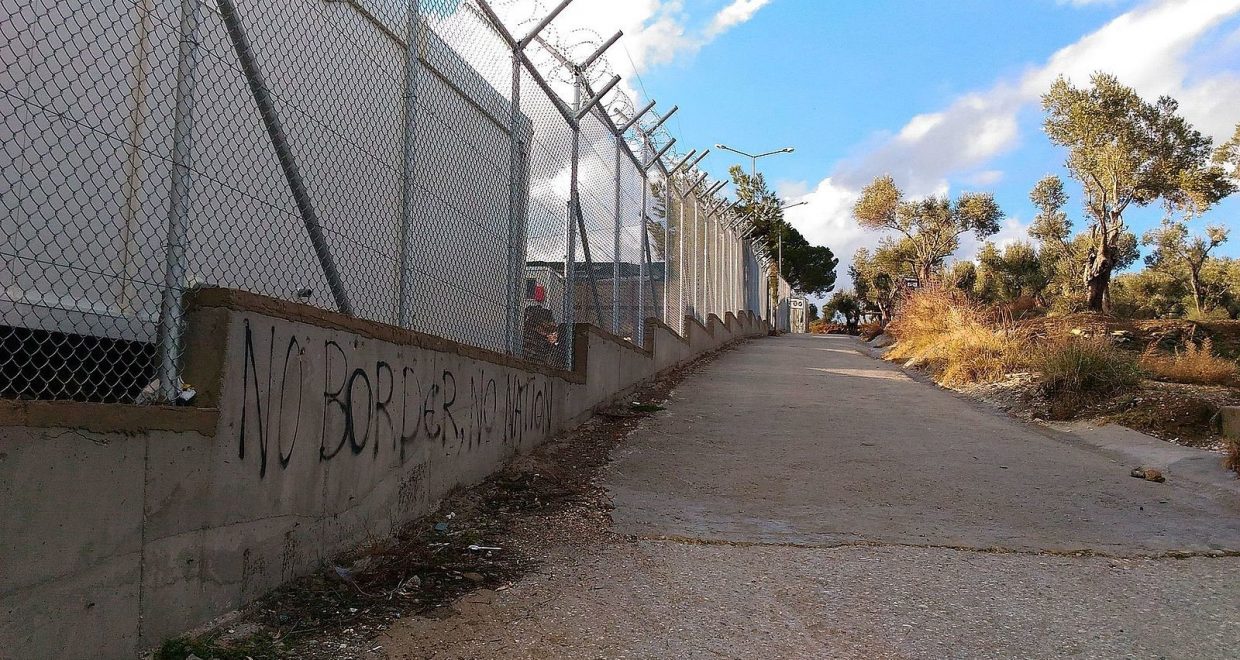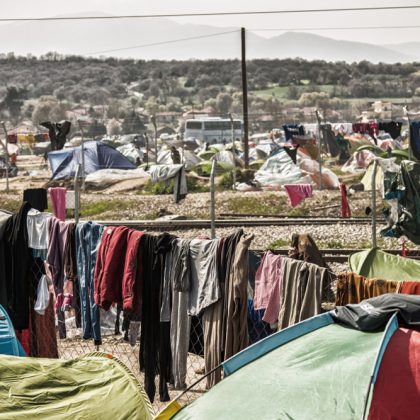A mental health crisis in Lesbos
The RCPsych Article of the Month for December is from BJPsych International and is entitled ‘Headaches in Moria: a reflection on mental healthcare in the refugee camp population of Lesbos’ by Tom Nutting.
Like many people across Europe, I was horrified as images of overcrowded dinghies and drowned bodies washed up on my screens through 2015. The ‘migrant crisis’ was on my border and yet it seemed so far away; I was annoyed by the sense, in the UK, that it was not really our problem – an attitude reflected in the embarrassingly low number of refugees we agreed to accept. Still, I felt there was little I could offer at the time besides donations and letters. Three years later, having finished my foundation years, I felt I had some skills and time to offer. I was originally going to volunteer with a SAR NGO a friend had worked with but that fell through last minute as several members had been arrested by the Greek authorities, accused of multiple crimes! This occurred as many Mediterranean countries were – illogically and immorally – attempting to shut down the continued flow of migrants, most notably Italy. This change in plan reflected a shifting focus of humanitarian work in the Mediterranean more generally. Whilst boats continue to come, the emerging crisis has become the thousands of refugees stuck in refugee camps, especially in Greece, since the 2016 EU-Turkey deal turned them into prisons. The main issue on Lesbos now is all the people in (and out) of Moria refugee camp, which has not changed much in terms of its infrastructure since 2016 when its official capacity was around 3000, but its ‘residents’ now number over 13,000! With terrible conditions and minimal healthcare provisions, Moria is a humanitarian crisis. It is especially a perfect storm for mental illness, with people already traumatised by what drove them to leave their countries then having to endure life-threatening and humiliating journeys, only to arrive in an overwhelmed barbed-wire camp, with little support, continued threat of violence, and little hope for moving on. What could I do in this situation?
The answer is not much. But what I could do expanded into my reflective article, ‘Headaches in Moria’. I found that working within such a setting started to change my practice; very limited resources meant a whole lot more (hopefully) therapeutic talking, and, in the absence of available medicines, a lot more signposting and suggesting any social interventions we were fortunate to know. I questioned the usefulness of diagnostic categories. I also began to think of the role of a doctor as advocate; whilst the idea of a doctors’ ’social contract’ may seem archaic, it is true that doctors are often respected in many cultures, and it is also true that if we want to improve the health of our patients, we should acknowledge the social determinants of health – but should we go further and try to change these? Can we change these? I wonder if perhaps we ought to. The very least we can do is speak out – as individuals and collectively – when basic healthcare needs are not met. Though I’ve heard that (a few) more Greek doctors have now been recruited into Moria, the number of refugees arriving onto the island this summer matched that of 2016. With continued violence in the DRC and disturbing recent news of Turkey invading Syria, those attempting the desperate journey will only continue to arrive.
View the open access article here.
Why I chose this article:
“We have heard rather little in the news recently about the migrant crisis that has engulfed the Greek Aegean islands, notably Lesbos which lies off the north coast of Turkey. But the problem has not gone away, and arguably it has gotten worse since the world’s attention has turned elsewhere. Tom Nutting has written a moving account of his experiences working in the notorious Moria camp. Because of its geographical situation, Lesbos is still the favoured destination for those fleeing Turkey by sea, especially refugees from Afghanistan. Political pressures in Turkey are leading to efforts to contain the inflow of refugees from neighbouring countries, and to reduce the number of over 4 million refugees already there. These measures could dramatically increase those seeking asylum in Greece. Dr Nutting’s report raises many ethical questions about the role of the psychiatrist in a camp where traumatised families are barely coping, with no realistic hope of respite.”
David Skuse, Editor-in-Chief, BJPsych International
There’s more…watch the video abstract from Author Tom Nutting:
RCPsych Article of the Month
Each month a paper is selected by one of the Editors of the five RCPsych Journals (The British Journal of Psychiatry (BJPsych), BJPsych Open, BJPsych Advances, BJPsych Bulletin and BJPsych International) View the full collection here.
Find out more about the RCPsych Publications by visiting the RCPsych Hub!
Image: ‘Outskirts of Moria camp’ – by Cathsign (CC-BY-SA-4.0)






